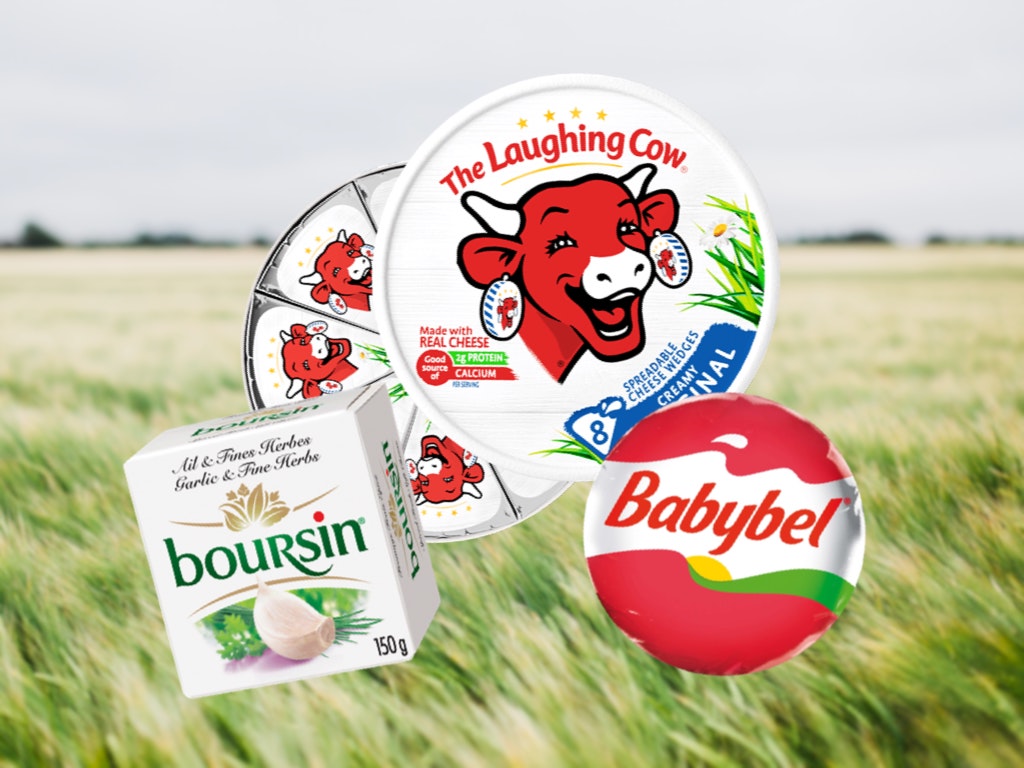The Laughing Cow, Babybel & Boursin: Cheese Giant Bel To Launch Plant-Based Versions Of Much-Loved Brands
3 Mins Read
French multinational cheese behemoth Bel Group, who owns multiple leading cheese brands including The Laughing Cow, Kiri, Babybel, Boursin and more, has announced its intention to offer plant-based versions of its core lines. The move is part of the company’s ambitions to transform into a “new food model” that prioritises health and environmental responsibility, and comes as plant-based demand reaches an all time high amid the coronavirus crisis.
Announced on Tuesday (October 13) during a joint conference held by Bel Group’s key executives, the company will be making a dramatic shift to put responsibility and health at the heart of its business strategy. A core part of the plan will involve ramping up plant-based innovation and offering a vegan version for each of its iconic brands, including The Laughing Cow, Babybel and Boursin.
The first product Bel will launch will be a plant-based version of Boursin, which will be sold in the U.S. market through e-commerce platform Amazon Fresh by the end of this month. From January 2021 onwards, Bel plans to debut its The Laughing Cow Blends across the U.S., U.K., Canada and Germany, saying that its main target is the growing numbers of flexitarians who are increasingly conscious of health and sustainability.
The Paris-based cheese giant – whose operations span 28 production plants worldwide with a distribution network in 133 countries including 44 in the African continent – additionally revealed that it is now in the process of developing a plant-based Mini Babybel, as well as a brand new international brand that will be entirely dedicated to vegan products.
Speaking during the conference, Bel Group’s chairman and CEO Antoine Fievet, said: “There is no future without responsibility. In the age of Covid-19, [we’re] more convinced than ever that…responsibility is the only way to face challenges and to stand the test of time. We are keeping our course, remaining determined in action, and accelerating.”
Given that in the U.S. alone, around 700 million Mini Babybels are sold annually, Bel’s move to offer plant-based versions of consumer favourites presents a huge opportunity for impact. Globally, an eye-popping 10 million portions of cheeses manufactured by the Bel Group are consumed every single day.
In the age of Covid-19, [we’re] more convinced than ever that…responsibility is the only way to face challenges and to stand the test of time. We are keeping our course, remaining determined in action, and accelerating.
Antoine Fievet, Chairman & CEO of Bel Group
Reports have found that the 13 biggest dairy companies alone produce enough greenhouse gas emissions to match that of the U.K., the sixth largest economy in the world.
While plant-based dairy alternatives are not a new trend, it has become clear in recent years that it has become a major market that even industry giants like Bel cannot afford to ignore – especially as the coronavirus slashes demand, forcing even big dairy into an “existential crisis”.
Research by market analysts FMCG Guru indicates that 44% of global consumers say they are consuming plant-based dairy alternatives as a source of protein, while 28% are specifically choosing plant-based milk on a regular weekly basis. What’s more, while 26% of people surveyed say they follow a flexitarian diet, 35% told that they associate plant-based alternatives with lacking taste. Given Bel Group’s commercial cheese manufacturing expertise, the horizon for plant-based cheese availability and taste profile is looking bright.
For the past year, we have been accelerating the Group’s transformation, with the conviction that a responsible and profitable growth is possible.
Cécile Béliot, Bel Group Executive Vice President
Other sustainability-focused initiatives that Bel announced in yet another signal of the pressure Bel is facing from increasingly conscious consumers include joining the Act For Nature initiative to promote biodiversity, pledging to fight food waste and launching trials for new sustainable packaging. According to the firm, it will increase the use of recyclable or biodegradable packaging from the current 84% to 100% by 2025.
“For the past year, we have been accelerating the Group’s transformation, with the conviction that a responsible and profitable growth is possible,” said Cécile Béliot, group executive vice president of Bel.
Lead image designed by Sally Ho for Green Queen Media.




